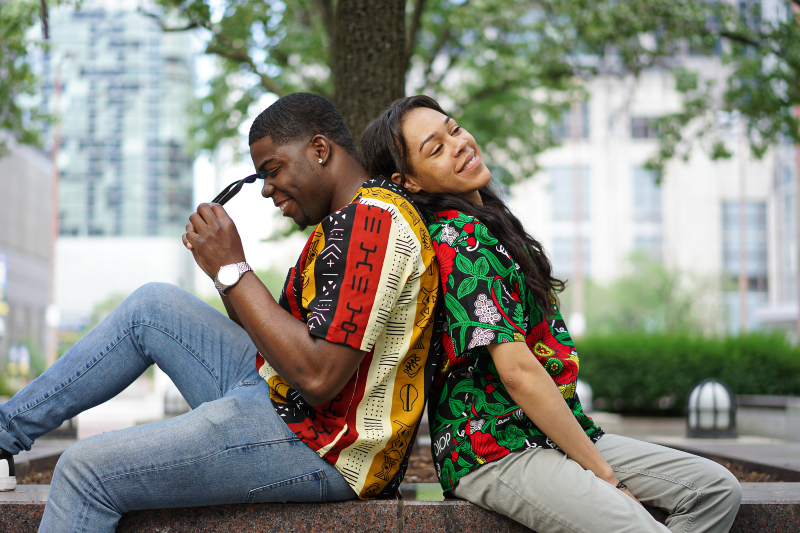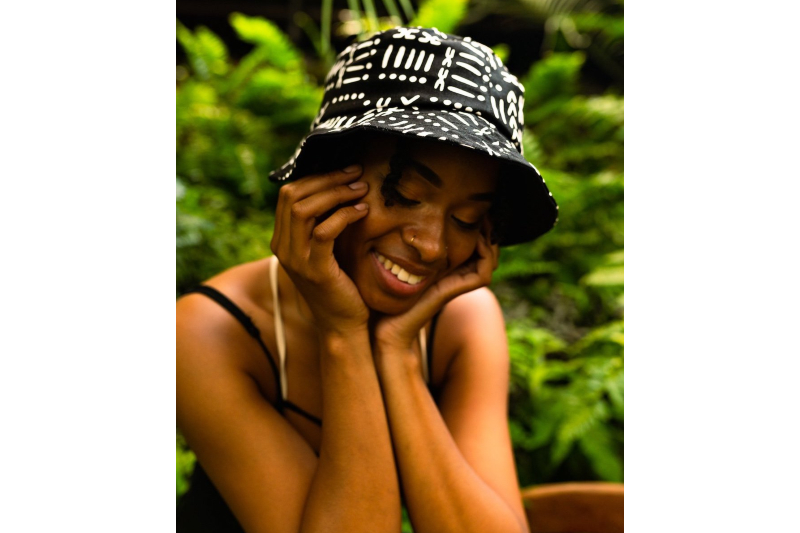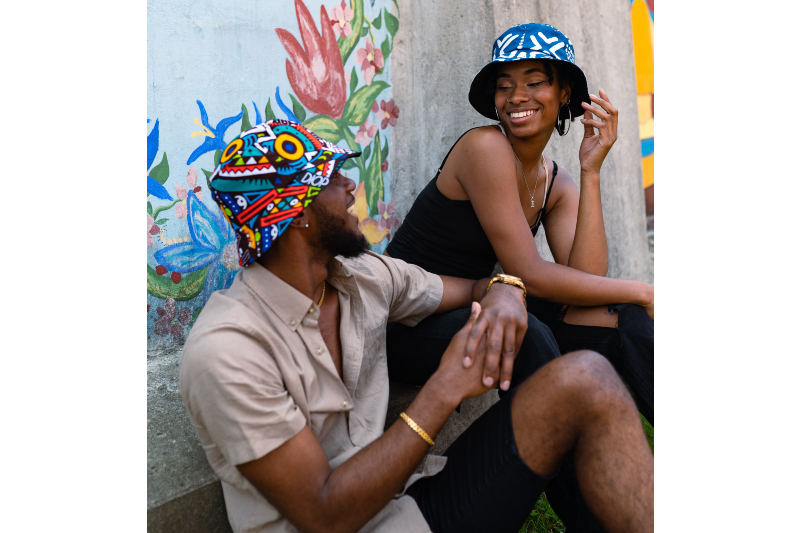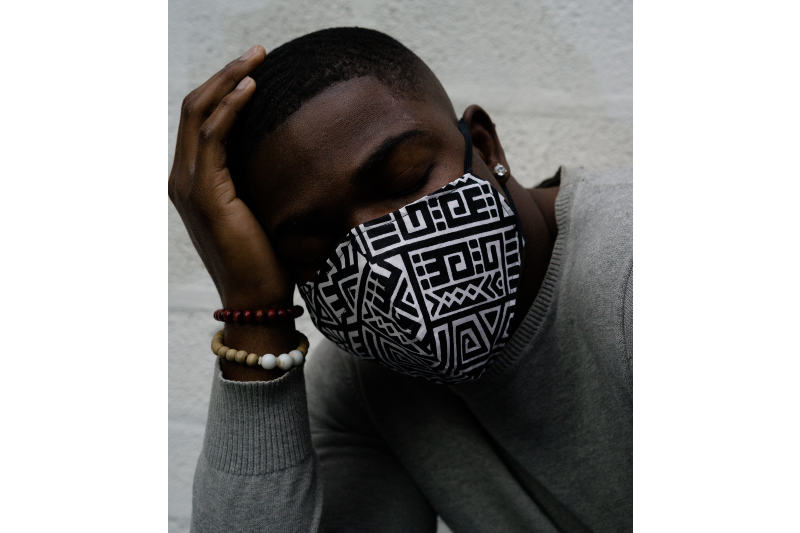
When Mapate Diop was growing up in New York City, his mother would regularly travel to her home country of Nigeria, bringing back to the States with her rolls of ankara, a popular fabric used in West African fashion. Diop’s mother would then find a local tailor to have custom shirts made from the brightly colored and patterned cotton cloth, which Diop would wear with pride. These garments made him feel special inside, and they also became a way for him to outwardly celebrate his heritage. But Diop knew he was lucky, and that for many people like him, that experience simply wasn’t readily available.
It wouldn’t be until much later that Diop would take this personal feeling – and its connection to a clothing item that represented so much to him – and turn it (with the help of an inquisitive friend) into a full-fledged business. Today, this sentiment still embodies the ethos of the Diop brand, which, with quality and comfort at the forefront, makes African diaspora-inspired streetwear. Formally launched in September 2018 by Diop and co-founder Evan Fried, the Detroit-based label has developed a loyal following and grown a culture of community that places a strong emphasis on giving back.
A Business Is Born

Before launching his namesake clothing brand, Diop joined a graduate fellowship program that gave him exposure to working with start-ups and new businesses, and ultimately formed the backdrop to him kicking off his own project with a partner. “My friend Evan, who’s also a Venture for America fellow, came up to me at a barbecue and asked where I got the shirt I was wearing,” Diop tells The Manual. It was, of course, one of the shirts that his mom had made. Fried was curious about whether the two could make the shirt themselves. “That’s as close to an ‘aha’ moment there is,” says Diop, but the duo weren’t confident yet that they had a product to sell, not to mention making a business out of it. “After six months of making prototypes, we launched a crowdfunding campaign after the recommendation of a friend. With the success of the campaign, we left our jobs and moved to Detroit to join a start-up accelerator.” The label has just recently wrapped up its fifth collection.
The Diop Circle

Central to the brand and its focus on community is The Diop Circle. “It wasn’t just important that people see themselves in our products but that they hear themselves in our brand,” Diop explains to The Manual of what the team gleaned early on during interviews with some of the company’s earliest customers. “We thought what better way than to work with our friends and family [and our] customers and partners to share what is meaningful to them.” Every week, Diop turns over its social media platforms to a member of their community, which allows them to relay a personal story.
“Every story is resonant in its own way. We deeply admire their courage and generosity in sharing these stories with us and feel very fortunate to have such a sensitive and engaged community regardless of their respective backgrounds. And while each of their perspectives might be different, we believe everyone is on a journey and Diop is right there with them. With each community story, we hope to share what we all have in common and celebrate the differences that make us unique.”
How Diop Is Giving Back

The devastating effects of the COVID-19 pandemic on small businesses will be felt for years – if not generations – to come. Yet, despite being a start-up itself, Diop is making an enormous effort to give financial support to businesses in need, as well as providing assistance to other charitable organizations tackling existing social issues, like food and housing insecurity, and justice reform and civil rights. “We’re fortunate to work with very experienced partners locally in the metro area,” says Diop. So far, Diop has donated over $135,000 to more than 50 different initiatives. The money was raised by donating a portion of each sale of the company’s cloth masks.
“We often say it’s not the clothes but how they make you feel and what you do in them that matters. We try to demonstrate that by not only giving people a means to express themselves, but also [by supporting] them and [doing] work that’s even more important.”
How You Can Support

As Diop has shown through the work it has done, the brand cares about more than just its profits. With plenty of products to choose from (including shorts, bags, accessories and the brand’s flagship top), you can feel good knowing that your next fashion swerve is from a company that deeply cherishes community. And, deep within its DNA, it has an authentic story to boast.
This feature is part of our Brands Giving Back Series, where we’ll bring you all the latest news on brands that are giving back to the community, and how you can support by shopping online.


